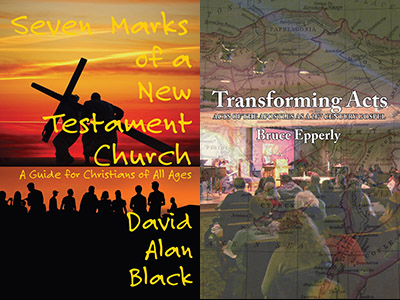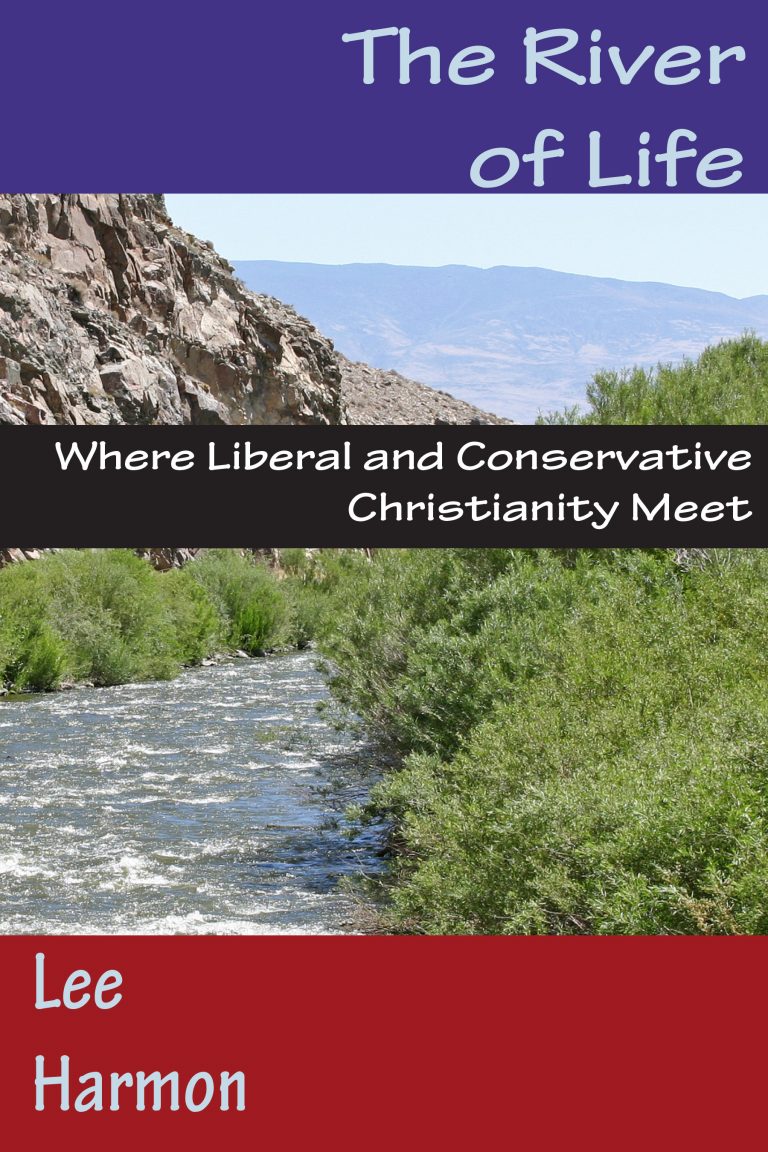Some Thoughts on Ecclesiology from Someone Utterly Unqualified
Several things I’ve written lately lead to thoughts on ecclesiology, though that is hardly one of my subjects. People do sometimes make assumptions because I’m a member of a United Methodist congregation. So I’m going to make this personal, first saying why I am in a United Methodist congregation and second saying what I see as ideal in a church. This is just a bit of rambling—fair warning!
I prefer to call myself a Christian who is a member of a United Methodist congregation rather than a Methodist. That can be clumsy, but I don’t think of myself so much as a member of the denomination as of the local church. There’s a fairly simple reason why I’m part of a UMC, and that reason can be found in the early pages of the United Methodist Discipline. While I am hesitant to identify fully with a theological stream, the doctrinal standards of the United Methodist Church come closest of any I know to what I can affirm. There are less restrictive statements I could also affirm, but they tend to affirm too little, in my view.
My great disappointment with United Methodism is that so few Methodists are aware of this theological heritage. I’ve written about this before. The pastor of the first United Methodist congregation I joined confessed to me later that when I came to his office and borrowed a copy of the Discipline, he thought it was likely I would never return. If I had read the later parts about organization, committees, and so forth, it’s quite possible I would have been driven off. Sometimes I feel one requires legal training to navigate the authority structures of a United Methodist congregation.
I should confess that, in addition to a lack of training in church administration or ecclesiology, there is another reason I’m utterly unqualified. My attempts at involvement in church politics or governance have not been terribly successful. They have generally been bad for my health and not very constructive for the church. I do well in one on one encounters. I’m much less successful at committees. And whether they call them “teams,” “working groups,” or just “committees,” these groups of people make a UM congregation run—or not. My observation is that most Methodist churches function because the actual power structure knows how to work its way around the paper power structure. That could be excessively cynical. When I joined my current church, I told the pastor that if he needed someone to park cars or teach Sunday School I was there for him, but if he needed someone to be on any committee, count me out.
But my ecclesiology is not formed particularly by the structure and order of the United Methodist Church. I find that the hierarchical system tends very much to spend its time maintaining the institution and then wondering why the acknowledged work of the kingdom isn’t really happening. Pastors are moved in an arbitrary way, often without regard to the state of whatever ministry they’re carrying on where they are. Relationships between pastors and churches are hard to form, unless the church is large and has a greater influence on who will be on the staff and how long that person will stay.
That set of complaints may sound negative, but I don’t see the United Methodist system as horribly deficient either. It has its problems, but in my experience so do all other systems of governance that involve humans. While the UM system may move a pastor when he really should stay, congregational systems often pair dysfunctional pastors and congregations until both pastor and congregation are spiritually dead. While the hierarchy may make for a certain amount of political structure maintenance, it also provides both connections to other places, and can move a dysfunctional pastor before he or she does more damage. Large structures allow the church to bring a wide range of resources together to accomplish great things.
Unfortunately, I don’t think that either system guarantees that any of these great things will be accomplished. the combined resources of a large denomination could do great things, but they often get siphoned off to maintain a great headquarters building (or something similar).
Summary: Every kind of church structure I’ve experienced (and I haven’t experienced all) has it’s problems and its benefits. While there may be a form of organization that’s better than any other, I’m not sure what it is.
There are, however, some principles that I would want to see. If I could find a church manifested some of these, I think I’d want to make it a base of operations:
1) Recognition of more than one form of ministry. Modern churches tend to recognize pastors and put them in charge. There aer more gifts and more offices. I think setting people apart by laying on of hands should apply to all the various ministries of the church. The pastor doesn’t need to be a church administrator, publicity coordinator, facility manager, and general problem solver. There should be evangelists, teachers (sometimes pastor-teachers, sometimes just teachers), administrators, helpers, and yes, prophets. (See Ephesians 4:11-16, though I don’t regard the list as exhaustive.)
2) Because there are many forms of ministry, everyone in the congregation is set apart. I’d like to be part of a congregation where the assumption is that everyone will have some sort of service. Let’s lose “member” vs “attends” and think of “attends” vs “active.” In my book Identifying Your Gifts and Service: Small Group Edition, I call for every member to become a gift spotter. The assumption should be that being part of the body means exercising gifts for the body.
3) Communion, preferably in the form of a common meal, becomes the center of congregational gathering. This would be what we do for a “worship service.” I have a fairly high, sacramental view of the communion meal combined with a rather low view of ordination. I think the Spirit of God in the congregation is what should authorize communion. I don’t believe that there should be a distinction between clergy and laity, but rather a distinction between different varieties of servants. We set people apart not because we make them better than others, nor because we acknowledge them as better than others, but because we acknowledge that they serve in particular ways with particular gifts. When this time of communion occurs, I believe that God is really present in the elements and in the people through His Spirit.
4) Leadership is strong, but is plural. There is no single person whose personality is stamped on the church. I believe this can be carried out under many different types of polity. One of the weaknesses in the Methodist system is that a pastor gets a level of respect because he’s sent by a bishop, and the bishop is way up there, so to speak. So the church centers around the pastor’s views and wishes. A pastor who wants to have a successful career will tend to work the nomination system and stack committees, especially the Staff-Parish Relations committee. Then a new pastor will come, and he may have a different personality. I believe that a church needs to have more people who exercise real leadership. I know there can be real problems with this, but as I’ve noted before there are real problems with any system that involves people.
5) The church builds connections with a variety of other churches. The Methodist system speaks of connectionalism, and this is a great characteristic. I’d prefer to see a greater degree of connection between churches of different denominations down the street. So I see connections as important, but I think that they should not be restricted to one denomination.
6) The church is accountable in some way. In the Methodist church, this accountability is to the bishop and to the structures of the church. I think more independent congregations can choose to be accountable. The only way to know what’s going on is to observe.
7) The church has an identifiable, known set of theological essentials and affirms freedom in other areas. I know this stresses people out on all sides. Some don’t want any definition. Others prefer very limited freedom of teaching. I think the most mature congregation will be produced by having a carefully chosen and defined set of essentials and then allowing free discussion outside of that. I think there are many topics that should be non-essential and open to a variety of views.
8) The majority of church income is used for outreach and service. As long as the majority of our money and effort is used to maintain the physical structure and the political forms, I don’t think we’re where we need to be. To be clear, what I mean is more than 50% of the money received by the church is going somewhere other than maintaining the congregation itself. Since I’ve been told that 5% is considered “mission minded” for a United Methodist congregation, I think this may be the hardest one.
There’s the saying that if you find the perfect church, you shouldn’t join it. You’ll spoil it! I don’t think this is the perfect church, but it’s one I’d be willing to try to live up to.
In the meantime, however, I believe that the local congregation of which I’m a member is doing a great deal of good ministry. The gospel is preached. I’m particularly impressed with programs for children and youth, and the educational program is moving forward. It’s too bad that it’s hard to get 1,000 people out of a congregation of > 3,800 to attend on a Sunday morning, but I think the pastoral staff have done a good job. No, it’s not my description of an ideal church, but to be honest, I don’t expect to find one of those. But where I have a chance I’ll keep advocating …
Note: As a publisher, I publish some books by people more informed on these topics. I’ve been particularly impressed with two recent releases from opposite sides of the theological spectrum, Dr. David Alan Black (Southern Baptist) and Dr. Bruce Epperly (United Church of Christ). Dave’s book is Seven Marks of a New Testament Church and Bruce’s is Transforming Acts: Acts of the Apostles as a 21st Century Gospel. It’s interesting to see people from across the theological spectrum looking back to the book of Acts and the early church to learn how we might move forward in the church today. Don’t blame them for my ideas. Each has his own, and they are both worth reading.

